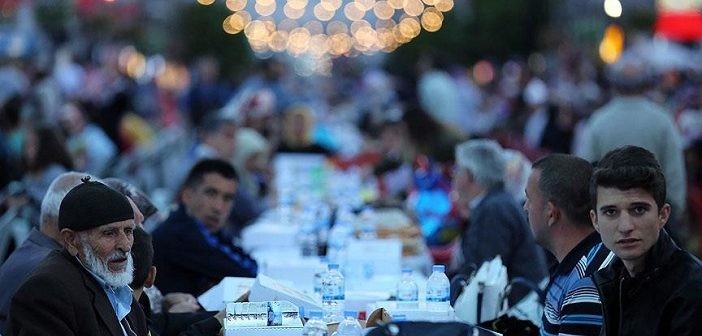
A Mercy for the Believers
What does islam say about mercy? What is the mercy of believers?
One of the Divine attributes is Sattar Al-'Uyub, or the Veiler of Faults. As a manifestation of this attribute, Allah Almighty will question some of His erring believing slaves in private, so as not to divulge their faults publicly.
Safwan Ibn Muhriz Al-Mazini (may Allah be well pleased with him) narrates:
"While I was walking with Ibn 'Umar (may Allah be well pleased with him) holding his hand, a man came up and said, 'What have you heard from the Messenger of Allah (may Allah bless him and grant him peace) about an-najwa[1]?'
Ibn 'Umar replied, 'I heard the Messenger of Allah (may Allah bless him and grant him peace) say:
"Allah will bring the believer near and place His veil upon him and shield him (questioning him such that no other can see).
He will then ask, 'Do you acknowledge such-and-such a wrong action? Do you acknowledge such-and-such a wrong action?'
The slave will reply (in contrition), 'Yes, O Lord,' until he confesses to all his wrong actions and thinks to himself that he is destroyed.
Allah will say, 'I concealed them for you in the world and I will forgive you for them today.' Then he will be given the Book of his right actions.
In the case of the unbelievers and hypocrites, witnesses will say (exposing their sins publicly), 'These are the people who lied against their Lord! The curse of Allah is upon the wrongdoers!'[2]" (Bukhari, Mazalim 2, Tafsir 11/4; Ahmad, II, 74)
A slave's being alone with their Lord during the questioning is a special favour. This is why the friends of Allah have held a rather different view of the reckoning. The famous Sufi Abu Yazid al-Bistami (may Allah have mercy on him) is known to have once said:
"The people fear the account, while I want for Allah Almighty to call me to account."
When asked why, he replied magnificently, "It may be that Allah will address me (during questioning), saying, 'My slave!' And I will reply, 'Here I am, my Lord (Labbayk)!' His saying, 'My slave,' is dearer to me than the world and everything in it. Then he can do with me as He pleases!"[3]
[1] Najwa denotes intimate conversation. Implied here is the private manner in which Allah Almighty will call his believing slaves to account, without the knowledge of others.
[2] (11:8)
[3] Ibn al-Mulakkin, Tabakat al-awliya', Cairo 1415, pp. 399-400; Ibn Hani', Hada'iq, p. 320.
[1] See Haythami, III, 271; Muhammad Hamidullah, al-Wasa'iq, p. 367.
Source: Osman Nuri Topbaş , Journey To Eternity, Erkam Publications
Dying as Muslims

Death’s Mirror













